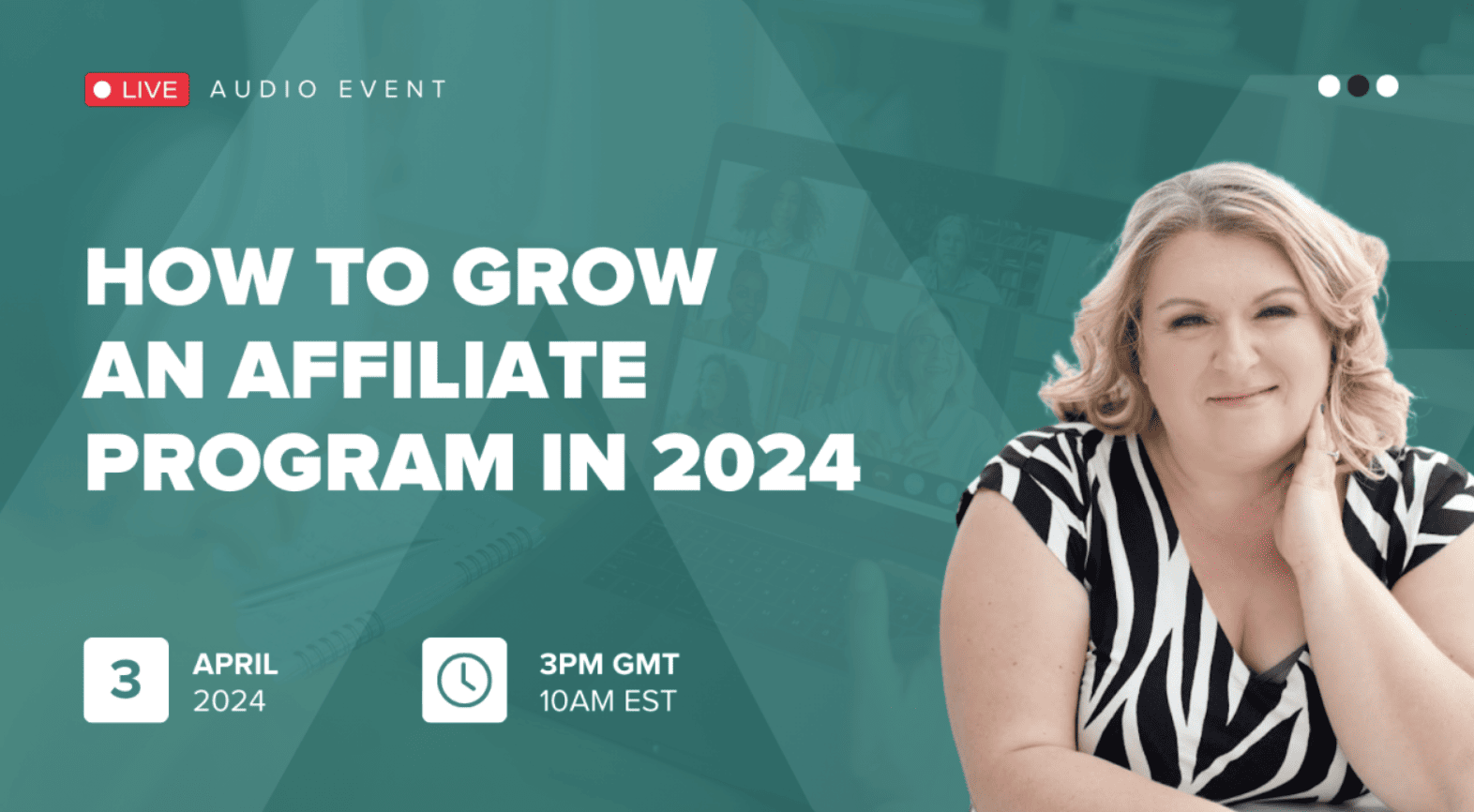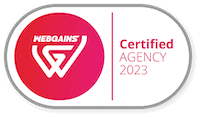Affiliate site or affiliate business… what’s the difference?
If you’re reading this, you might say that I’m an affiliate startup. However, I’m not keen on labels – you either have a business or you don’t. So, I wanted to make it clear at the start that I have started an affiliate website. I HAVE NOT YET built my affiliate business. My challenge over the course of this 12-month chronicle about affiliate life is to make a regular income from my affiliate website.
At this point, I’d be happy to say that I have then built a bonafide affiliate business.
The beauty of our affiliate world is that it can easily run in parallel to your day-to-day fulltime obligations (whatever that may be), until it starts to look like a more serious venture. For many, it’s a lucrative side-hustle. We’re like digital prospectors venturing into the world of passive income, until we’re ready to take the plunge and shift it to a full-time business.
In my opinion, you have an affiliate business when you finally establish a respectable 360-degree ecosystem. By that, I mean that you have a funnel of customers you successfully transition into some kind of tangible conversion. In the affiliate ecosystem, we acquire traffic and funnel that to an operator – but that’s not where our part in this machine ends. That traffic, that lead, needs to transition into a repeat depositing customer for our partner brands for this to be a respectable ecosystem.
You might notice an air of modesty here, or some might say it’s even a lack of enthusiasm for what I currently do have. I’m sorry, but I’m a realist! I want to send real “valuable” punters to sportsbook operators, so I won’t run around conferences telling people I have a business until I fulfill that 360 obligation as a lead generator with respectable traffic.
Starting out is never easy – but you have to try, try, try
I’ve tried many things in the past to get to this point. I’ve built a dating site, social community, various eCommerce projects and a digital agency, knowing that all of these were successful and somewhat lucrative business models. But deep down, I didn’t care enough for any of these. I don’t have a passion for agency life, I know nothing about dating and clients were always paying late, which infuriated me. But iGaming always excited me!
I was hemorrhaging cash on domains, web developers, trying different things and various app concepts, so something had to change. I definitely had the lightbulb moment that for many, is part of their life and career planning process. You see, I messed about at school too much to realise that life goals were the driving force behind most individuals’ career successes!
I read the classic self-help guides on how to be rich, how to start a business, how to do almost everything, blogs, vlogs, podcasts and so on. Most of them are fundamentally about how to start a business. There was nothing really solid available for those who had no idea about what business to start. I am confident there’s a wealth of entrepreneurial-minded people out there who have the passion and drive to start their own ventures, but just don’t know what businesses to start. Owing to multiple failings of my own, I had to establish a process to help me decide what I wanted to do and then stop this vicious circle!
Getting myself organised with 10 clear steps to launch
Before I could even start functioning as an affiliate business, I had to follow these steps which helped me establish some kind of rationale behind my choice of venture. These come from an amalgamation of Youtube help videos, podcasts and blogs. You know what I mean here – 15 steps to… the top 5 ways to… 10 reasons why… and so on but I’ve pulled these resources into a succinct plan to share with you.
- Identify the area you wish to work in, what can I do, what am I passionate about?
- Speculate on the product offering, what am I selling, what could I sell?
- Consider my appearance in my sector, the name, branding & brand.
- Create a business plan.
- Pick a model that will make this venture profitable.
- Research, customer funnels, competitors, regulations, risks.
- Select your tools.
- Where will you operate from, are you based, can this change?
- Imagine success, what does it look like, will you build a team, what skills do you need.
- Launch.
Let’s kick off with steps 1-5…
STEP 1: Identify the area you wish to work in, what can you do, what are you passionate about?
For me, this was very simple. I picked sportsbooks, gambling, betting and wagering and odds and markets! That’s my passion. I love the horses, cricket, tennis, I live for football and I can build and rank websites!
STEP 2: Speculate on the product offering, what am I selling, what could I sell?
We can sugarcoat this and again, I got this wrong for years. I worked off the notion that this was a physical offering (i.e. what product am I selling?). Having learned through a couple of failed attempts trying to sell tangible products like clothes or design services, the lightbulb went off again. I’m not selling five-star bet reviews here, I’m not selling my opinion on sportsbook cashout services, and I’m not peddling odds or tips or even stats. I’m selling convenience!
I’m selling a service that shortens the funnel for would-be gamblers. It begins with what they want or need and ends with the vendor or operator that can give it to them. If you sit there with your affiliate site thinking your product is reviews, or tips or odds, then I’d argue you’ve got that wrong. They’re still great offerings, but you’re actually providing convenience for those who like choice and then you give a little nudge in the right direction.
STEP 3: Consider my appearance in my sector, the name, branding & brand
I’ve got a shed load of domains, I won’t go into too much detail about this. But if you know, you know. They’re reminders of wasted ideas that I started and never finished. I didn’t go to uni; building and failing with multiple websites was my affiliate degree. For a lot of businesses the name or brand is one of the first considerations along with the matching domain name for a website. But this football data website almost didn’t happen, the term Stats Checker is actually synonymous with gamers and there’s a huge search spectrum of Fortnite stats searches out there already. I almost had a crack at building a Fortnite leaderboard website. But you know what, I know absolutely zero about Fortnite!
This football project actually started off as CouponBetting.com, another one of my many parked domains! But through a clumsy, unplanned obsession with buying domains, I already owned StatsChecker for the Fortnite idea, but realised it would work better for football data. My brand and branding will still develop in time, I’m at that early phase where I’ll probably look back at iterations of my site and cringe.
STEP 4: Create a business plan
I don’t have a documented plan. It’s my project, but I know what I have to do. You could argue that this documented chronicle may help shape my business plan. But as far as a rigid plan goes, I haven’t done that yet! I’m in between winging it and having educated exposure to building businesses for other people already as a guide. SEO is my niche, so I’m building a website that harnesses the power of Google organic search to earn my traffic, it will solve problems that football punters search for and I’ll get links to make sure it ranks well. Simple.
STEP 5: Pick a model that will make this venture profitable
I have to make money or this whole affiliate pipedream is a waste of time, but I don’t need it to drop overnight. I’m picking the traffic and ads model and kicking that off with an affiliate plan. I know there’s a huge amount of volume in my niche and whilst it’s less likely that my traffic will translate into FTDs, I’m pretty confident the volume in football stats searches is much bigger than those looking for “new player betting offers”.
Skype, LinkedIn, Whatsapp, Snapchat etc they all chose volume before profit and took a build and sell approach. These enterprises knew that volume traffic “eventually” translates into ad revenue, but they built their brands first, earning trust from visitors and users with free platforms without spoiling the experience with ads.
For now, I’m going to sit quietly confident that my traffic is growing and will eventually become valuable to operators who appreciate my model. They’re not going to get a tonne of FTDs from me, but they will get quality. The volume model of affiliate management has to change from the operator’s perspective. More and more people are turning to stats sites pre-game and we can very easily influence their brand betting decisions from the research phase of the betting funnel. As an affiliate, the build and sell model is also an attractive end-goal.
Next month, I’ll cover up steps 6-10 of my venture into life as an affiliate. I’ll do this so that you can take in what I’ve said in here, as well as giving you the full appreciation of how I’m building my website and affiliate business.























